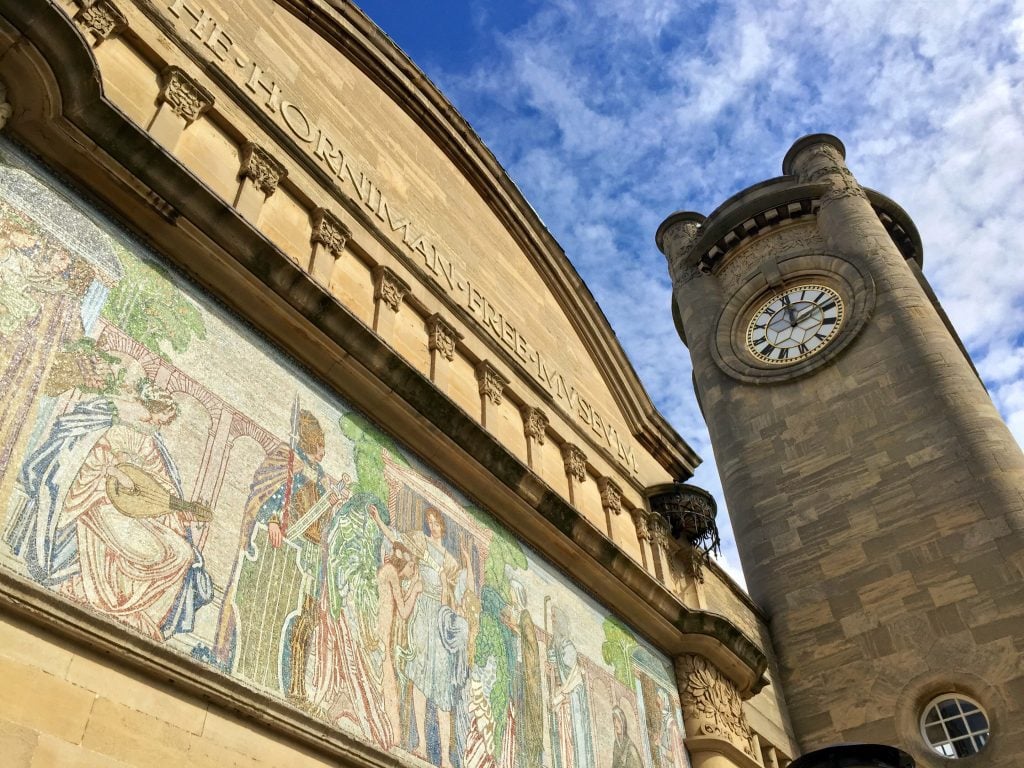Law & Politics
The U.K. Amends Law for Museums and Galleries Seeking to Repatriate Objects
The changes may limit the power of national institutions to return objects overseas.

The U.K. government has announced changes to laws it planned to introduce this year that would grant national museums in England and Wales more power to repatriate cultural objects within their collections.
In a letter dated January 31 to Charity Commission Chairman Orlando Fraser, the government noted that national museums and galleries would be excluded from key sections of the Charities Act 2022.
The act, introduced in September 2022, allows charities—including national museums—to dispose of objects where there is a compelling moral obligation to do so. Museums had previously been limited by the National Heritage Act 1983, which had restricted the trustees of major U.K. institutions like Tate and the Victoria & Albert from deaccessioning objects from their collections except under certain circumstances, such as if they are a duplicate or beyond repair.
The application of the Charities Act to museums meant that low-value items could be deaccessioned without seeking authorization. Meanwhile, higher-value objects could be deaccessioned with permission from the Charity Commission, attorney general, or a court.
While most provisions of the 2022 legislation have already been rolled out, the implementation of laws that could affect charities transferring legal ownership of an object to its country of origin were previously delayed to allow “further consideration.”
At the time, the government was concerned that the changes would remove the commission’s oversight of trustees’ decisions to restitute an object by way of an ex gratia payment. The former charities minister Lord Kamall referenced the return of six Benin bronzes by the Horniman Museum—which were handed over to the Nigerian government in November 2022 after receiving prior approval to do so by the Charities Commission—as a successful example of the provision in play.
Now the government has confirmed in the letter it will exclude international transfers of property from sections 15 and 16 of the act, meaning charities will still need to seek the commission’s approval. National museums and galleries are expressly noted.
“The policy of HM Government is that national museums and galleries should continue to be bound by their governing legislation, precluding them from resolving to restitute objects from their collections other than in the limited and specific circumstances expressly provided for in legislation,” wrote the minister of arts and heritage Lord Parkinson in the letter. “Charity Commission oversight of these cases provides an important assurance that the charity’s trustees have undertaken proper due process in reaching their decision. Removing this oversight would not be appropriate in restitution cases.”
National institutions have long cited legal restrictions as a cause for their inability to return collection objects. This has been raised for many years by the British Museum, for example, in response to Greece’s petitions for the return of the Parthenon Marbles, which were recently renewed.
Just last week, the British Museum’s interim director, Mark Jones, told the Times that he would support a loan arrangement between the U.K. and Greece over the Parthenon Marbles should he still be in the director position. Jones replaced Hartwig Fischer, who stepped down in August following the revelations that 2,000 items had been stolen from the collection.
The introduction of the 2022 Charities Act had fostered hope that less bureaucratic oversight would empower museum trustees to restitute objects if and when needed. However, as art law expert Alexander Herman, explained, the act “will not lead to the restitution of vast amounts of museum material, since the ex gratia power can be used only in rare cases.”
The latest update to the act does not deter museums and galleries from seeking the Charity Commission’s approval to return collection objects overseas, but it does mean that the commission’s approval is still required for even relatively small amounts or low-value items. The instance of the Horniman Museum’s successful restitution of the Benin Bronzes may even indicate an openness on the part of the Charity Commission to consider such applications in relation to restitution, according to Herman.
Retaining oversight of all ex gratia payments outside of the U.K. will allow the commission “to focus our resources more efficiently on larger and more complex cases,” according to Fraser’s response to the minister’s letter.
Enforcement of sections 15 and 16 of the Charities Act will begin later this year.





